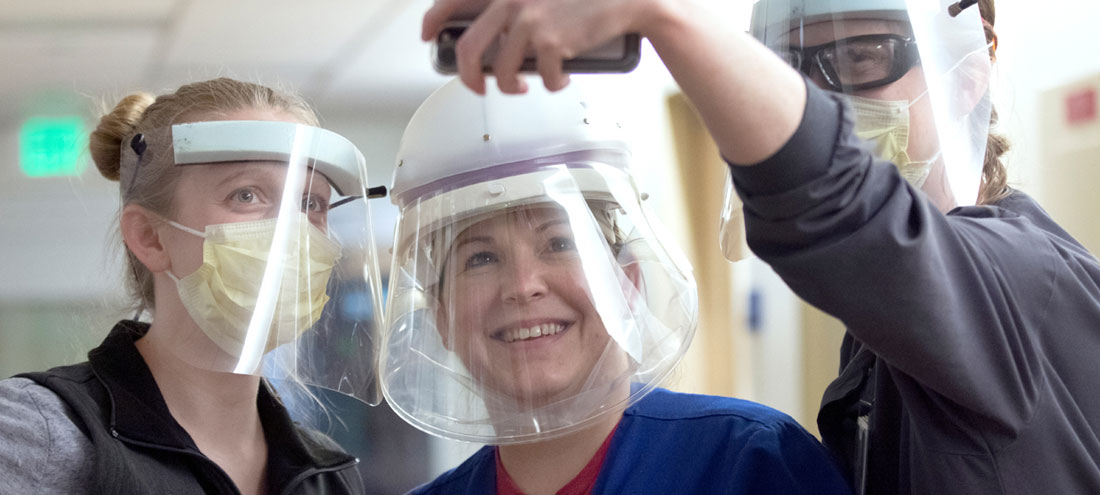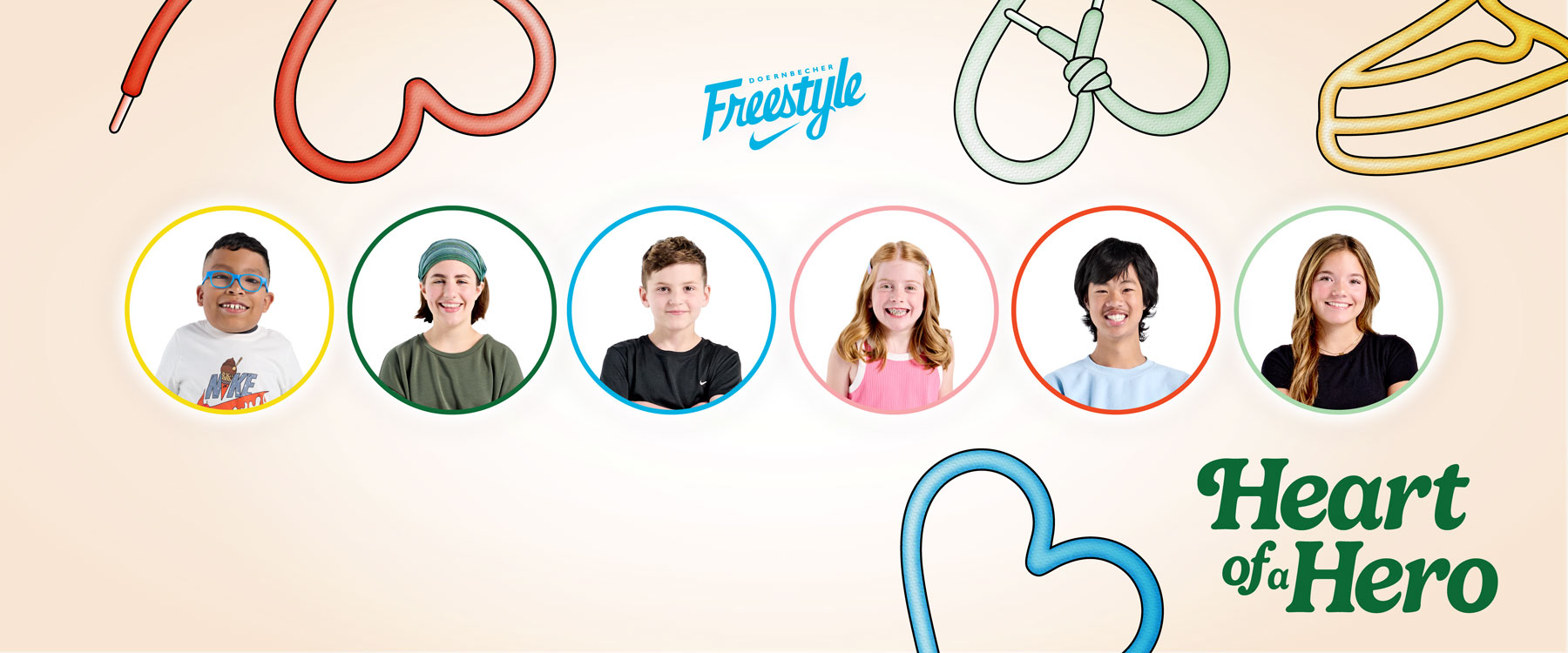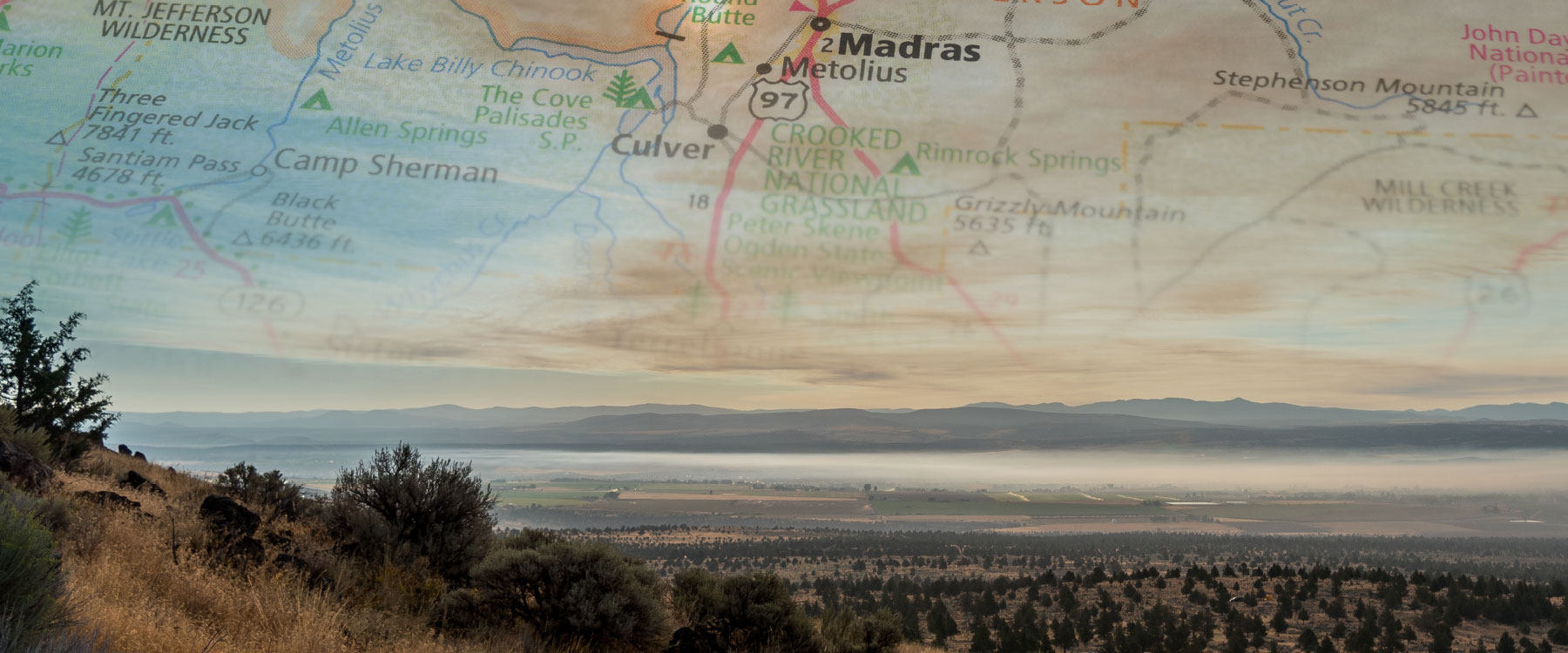The COVID-19 pandemic is unprecedented. That may be true. But unprecedented doesn’t mean unstoppable. Or unbearable. Or unending. Not if we can help it.
At OHSU, we’re working tirelessly to make this pandemic history. And we know that you’re making sacrifices to keep everyone in our community safe. When we act as one, we will persevere.
Meet 16 of OHSU’s health care heroes on the frontlines of the COVID-19 response.
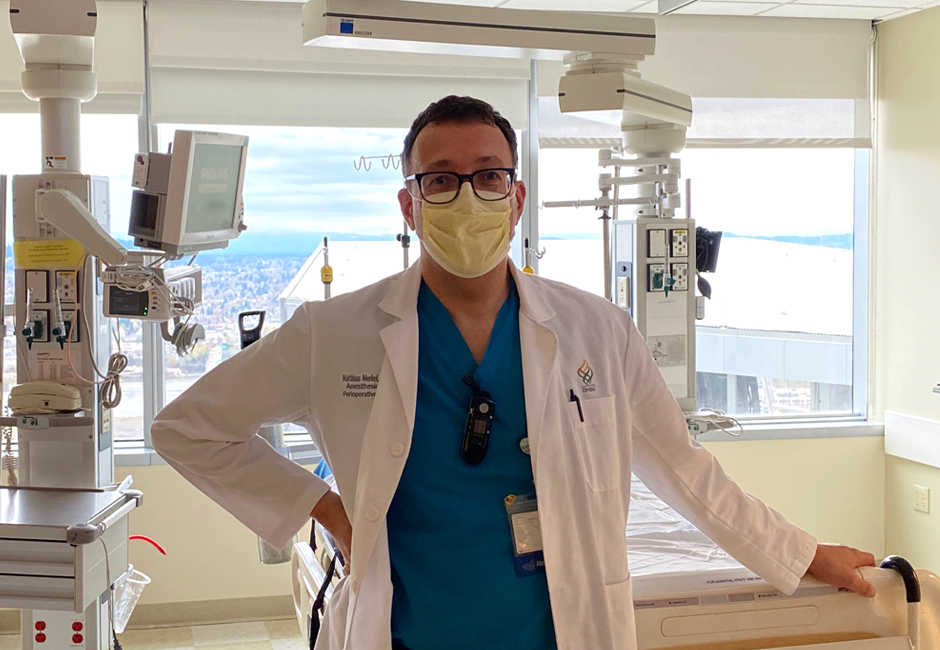
Matthias Merkel, MD, PhD
Chief medical capacity officer for OHSU Mission Control
Professor and vice chair of critical care, Department of Anesthesiology and Perioperative Medicine
“I am part of the medical branch of the emergency operations center, which has a lot to do with inpatient capacity preparedness.
We have expanded our Mission Control at OHSU and are leading the effort for real-time tracking of 90 percent of the state’s hospital beds in collaboration with state and health care partners. Having this capability allows us to act much more as one big health system. People are working closer together. This gives me a lot of hope.
The things that people run away from, I tend to run toward. I started on this path when I became a Red Cross volunteer in Germany when I was 16. It drove me to medicine, and it’s why I went into anesthesia and critical care. I feel I’m well prepared to lead and influence what we are doing, and am humbled by the number of people in all areas coming together that normally — outside of a pandemic — would never interact with each other, with a common goal of keeping us safe. This is true within OHSU, but even way beyond any hospital boundaries.”
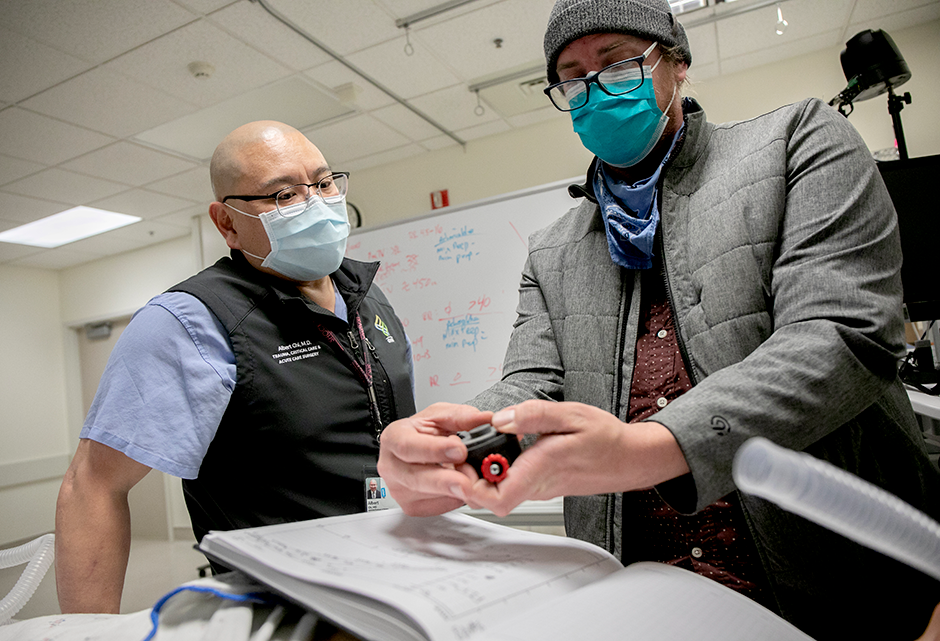
Albert Chi, MD, MSE
Trauma surgeon
At the first signs of an impending ventilator crisis, Albert Chi, MD, MSE, pivoted his lab into developing a low-cost ventilator solution. In four weeks, he and his team designed a sophisticated, standard-of-care ventilator that doesn’t require electricity and can be made for less than $10 of material — a potential game changer for areas hardest hit by the COVID-19 virus.
“It was complete excitement. It seemed as though our lab was made to do this. To think outside of the box and to come up with a solution, my team was completely excited for the challenge.
Our response as a community has been incredible. This project had a greater scope and impact than just the state of Oregon — our goal was to impact the nation, even the world.”
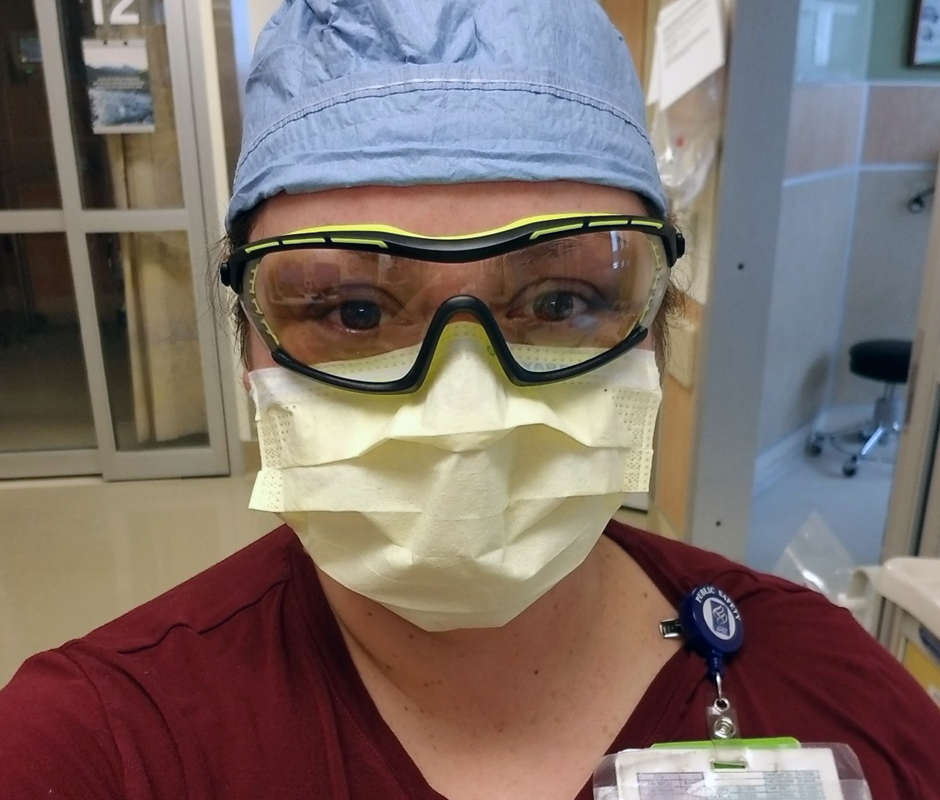
Sarah Gold, RN
Emergency department
“My focus has been keeping my family and community safe while still working with people who have COVID-19. I work in the emergency department and never know who will walk through the front door.
We are scared, but there was never once an option of not showing up to work, never even crossed our minds as something we would do. We have dedicated our lives to taking care of patients — it’s who we are. We support each other. My family has been more in touch now than ever. We are valuing our personal connections now more than ever.”
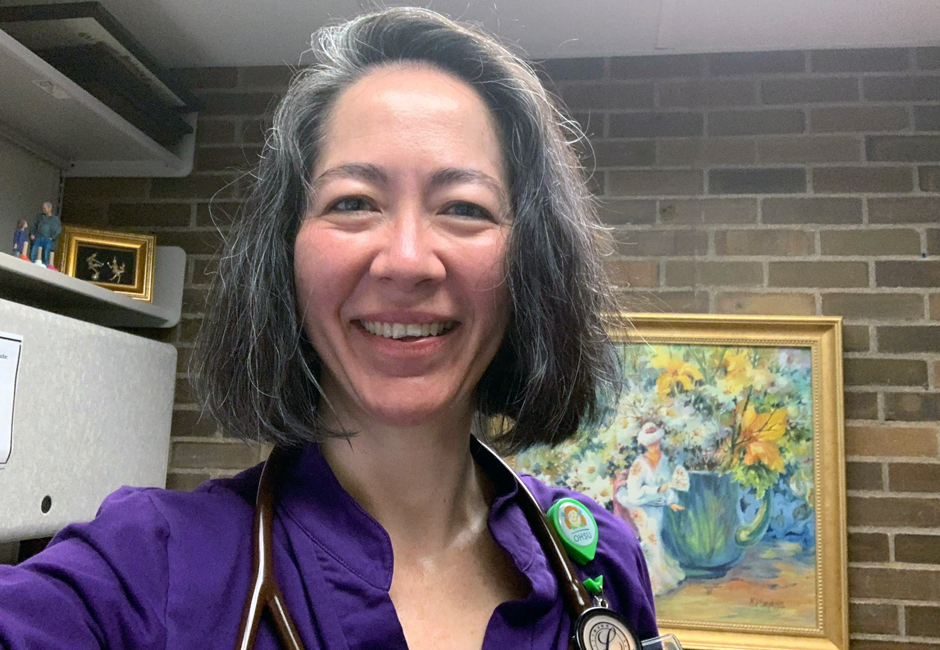
Dawn Nolt, MD, MPH
Associate professor of pediatrics, Division of Infectious Diseases, OHSU School of Medicine
“As a pediatric infectious diseases specialist, I’ve been trained for just this purpose: dealing with infectious outbreaks. I focus on the care of children and advocating for their needs.
In addition to caring for patients, I’m privileged to serve as the pediatric medical director for the department of Infection Prevention and Control. I attend daily meetings to assess our COVID-19 response and how it affects patients, employees and supplies — from visiting and testing to supplies and equipment.
In this role, I see all of OHSU as a ‘patient.’
There are long days, but much gives me hope: The collaboration of all my colleagues in hammering out plans for the hospital. The flexibility of our staff as they assimilate new information, daily. The patience of my peers in counseling their patients and colleagues during this crisis. These are just a few things fueling our efforts and giving us hope to overcome the physical and emotional impact of this pandemic.”
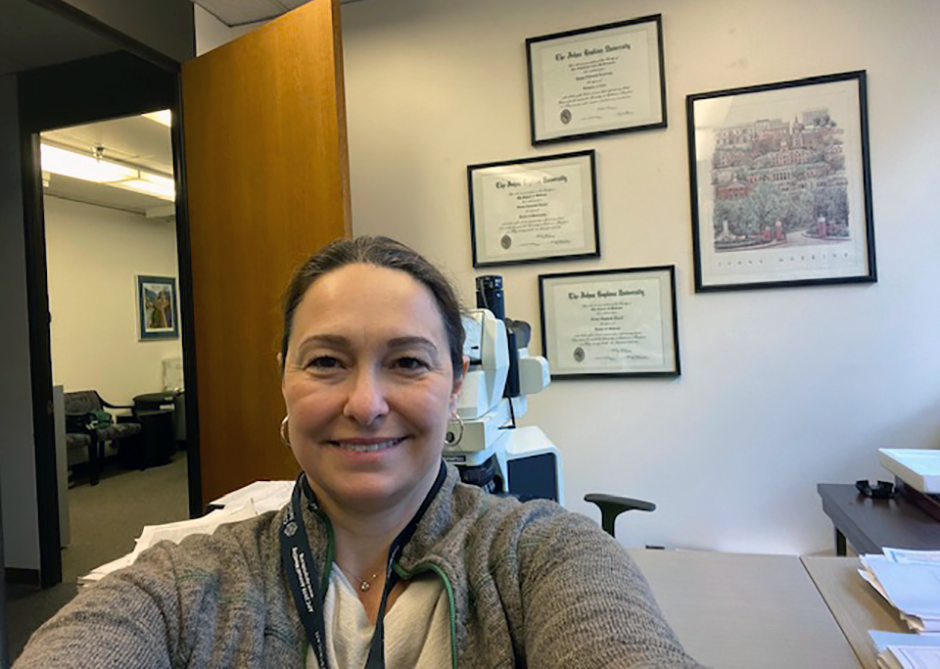
Donna Hansel, MD, PhD
Professor and chair of pathology and laboratory medicine
“As Chair of the Department of Pathology & Laboratory Medicine at OHSU, my department oversees diagnostic laboratory testing, including COVID-19 testing. In response to this unprecedented crisis, our team came together to build a new testing laboratory for COVID-19 within two weeks.
Our focus has been to develop and perform COVID-19 testing on swabs, saliva and blood to help keep our patients, health care providers and community safe. We hope our efforts contribute to the overall statewide effort to reduce the spread of COVID-19.
I’ve been so inspired by how much everyone in our OHSU community wants to help in this fight. We have received donations of equipment and supplies from many research laboratories at OHSU. Over 800 people responded to our initial call for volunteer lab staff. Our team is working day and night to continue to expand testing and report results because they know what a difference it makes.
We won’t be able to fight this disease alone. It’s not about one person, one lab, one institution, one state, or one country. It’s about all of us working together to find the solution.”
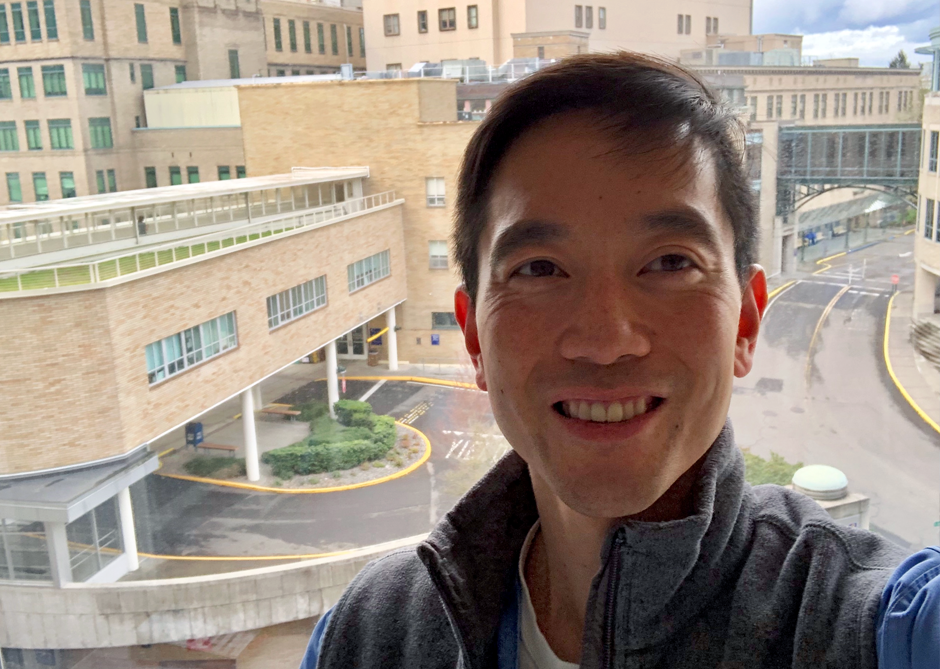
Anthony Cheng, MD
Primary care physician
Assistant professor of family medicine, OHSU School of Medicine
“I’ve been helping with the rapid migration of in-person clinic visits to virtual visits. It has been amazing to see our spirit of innovation on display. The health system seemingly transformed overnight, which speaks to our resiliency.
I am also the medical director for the COVID-19 Connected Care Center, the new hotline and telemedicine service for OHSU’s patients. Two goals are: Provide an easy access point for patients in Oregon to receive care related to COVID-19 in order to protect precious in-person resources, and boost primary care infrastructure in the state.
I am so inspired by everyone around me doing new things and working so hard while keeping spirits up. The hotline launched a week after the idea was approved and it’s been really impressive to work with such a talented group of people.
One night, after a long day at work, I heard a healthcare worker tribute from people on their balconies in the South Waterfront district. It brought me to tears. And patients have been much more up front with their gratitude. This kindness really makes a difference.”
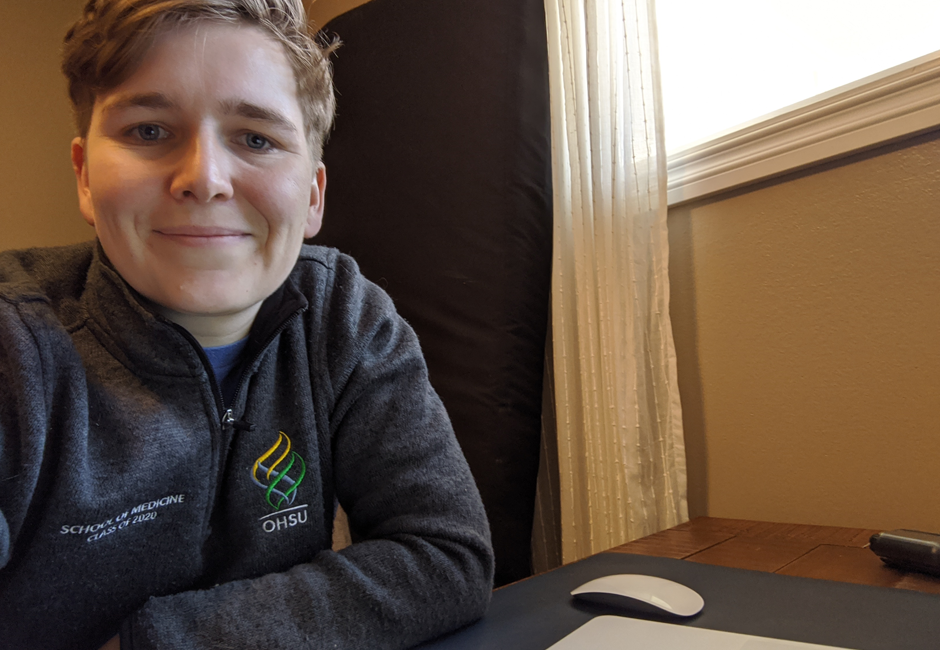
Alix Cooper, MD
OHSU School of Medicine Class of 2020
Beginning residency three months early at Cascades East Family Medicine Residency Program in Klamath Falls, Oregon
“As physicians, we swear an oath to dedicate our lives to service. That spirit of service is what led me to this line of work. During times like these, service becomes most important. My mom is a retired police officer, and just like that profession, we are expected to step up rather than step back in times of crisis. That call to service is what keeps all our frontline health care workers from turning their backs on patients. They continue to provide care, even when that means putting themselves at risk.
It’s not only about the providers, though. The actions being taken by individuals and workplaces to social distance are saving lives. If you’re feeling like there’s nothing you can do to help, know that just by staying home you are making a difference.”
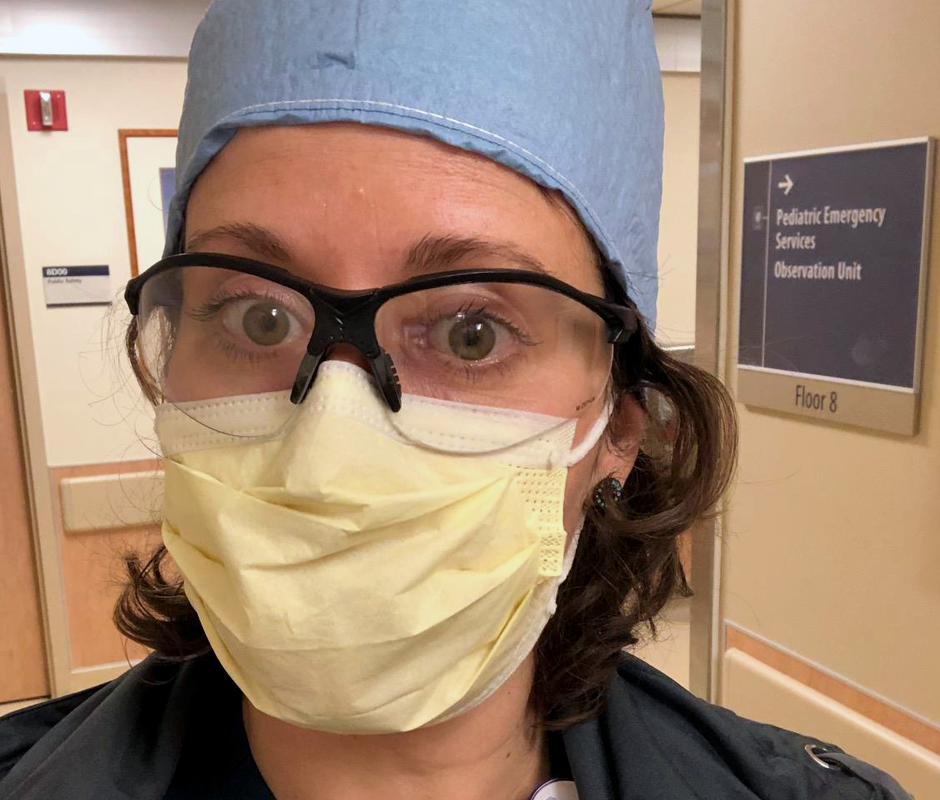
Myra Monberg, RN
Emergency department
“We are the gatekeepers to the hospital, and therefore serve as the first safety net to help potentially very ill COVID-19 patients, and also to aid in alerting the rest of the hospital before they receive these patients for care. Through my roles in our disaster preparedness committee and as a charge nurse, I’ve contributed to the overall ED surge planning that we now have in place should a large increase in COVID-19 patients present to our emergency department.
The encouragement from the public has been like nothing I’ve seen before. I tear up seeing the support for us frontline hospital workers. Window signs, nightly neighborhood cheering sessions, kids making homemade cards for us in the ED: it all means a lot. People genuinely want to help and keep each other healthy, and that is what I think will get us through this.”
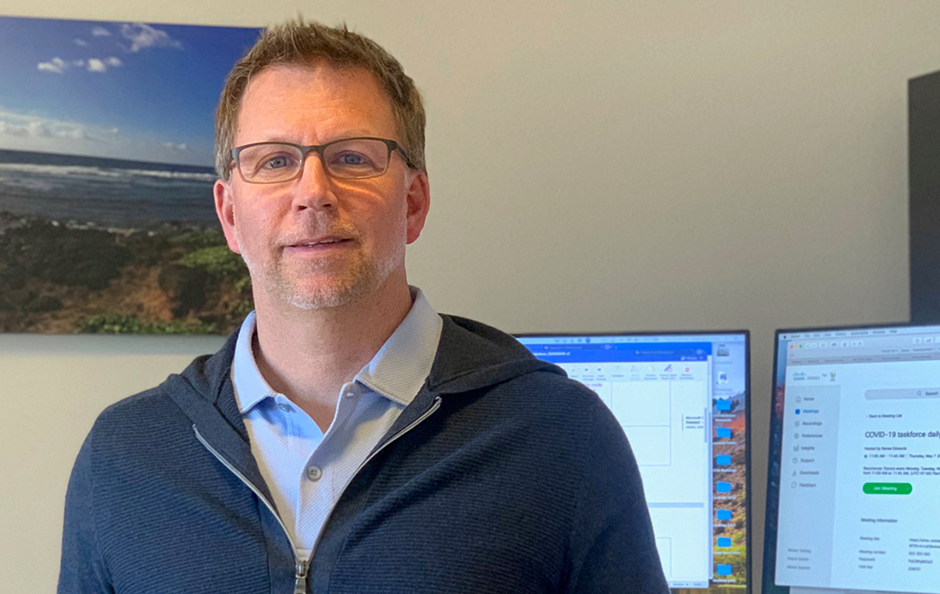
Mike McCaffrey
Associate vice president of logistics
Mike McCaffrey preemptively looked into options to ensure OHSU health care providers had the supplies required to do their jobs safely and successfully — a crucial role in the COVID-19 pandemic.
These steps to mitigate a potential shortage left OHSU in good standing with PPE and other supplies. And OHSU’s strong relationships with their supply partners leave McCaffrey feeling confident in OHSU’s ability to provide ongoing replenishments.
“Supply chain is often behind the curtain,” he said. “Not that its importance isn’t recognized normally, but COVID-19 has really pushed it to the front. We have a great team. It’s heartwarming to hear providers and leaders comment on how much they appreciate all the work we have done to ensure their safety.”
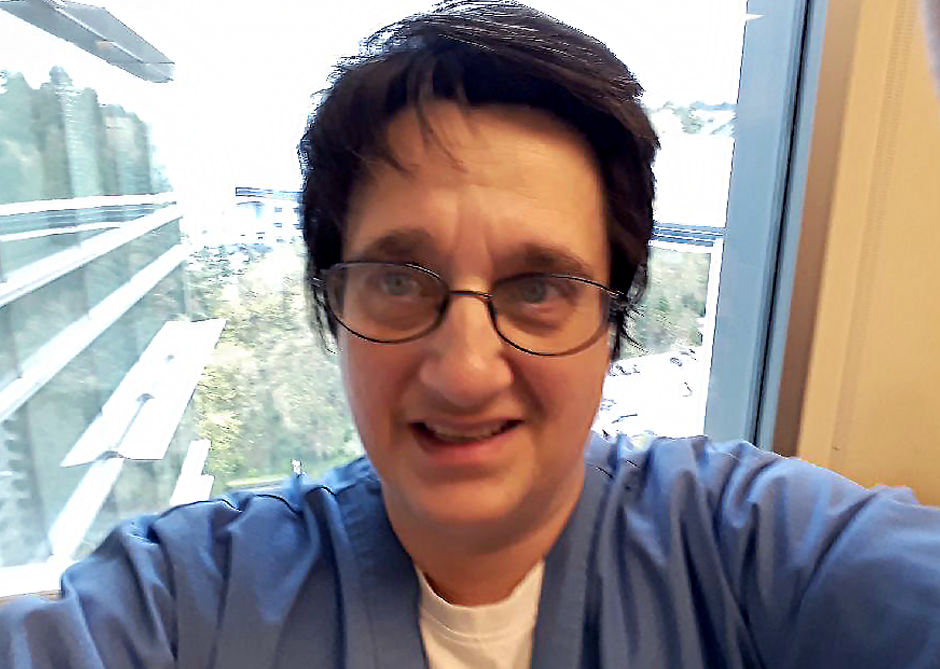
Delena Mansker
Environmental services technician
“We are part of a team. My part is keeping things clean — making sure that patient rooms are clean and that the nurses’ station is clean. They’re going to be busy soon, and we need to be right behind them, keeping things cleaned and sanitized so they can stay healthy to fight this. It’s all of us working together.
Out on the floor, you can just feel it. Everybody is ready to get in and help — everyone from environmental services to the doctors to the nurses. They’re ready to go. Everybody’s ready to do their part.”
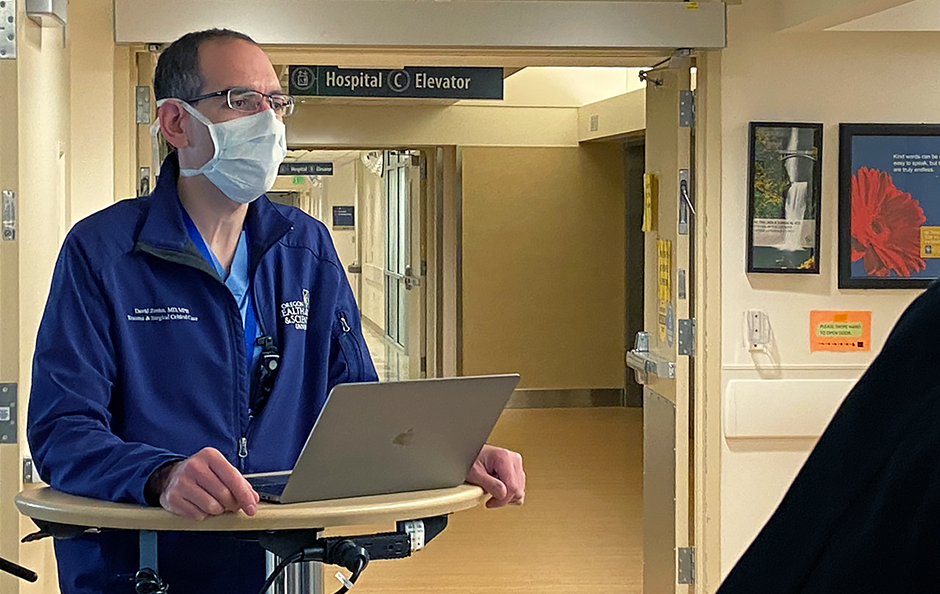
David Zonies, MD, MPH
Trauma surgeon in OHSU’s Division of Trauma, Critical Care and Acute Care Surgery
Director of Surgical Critical Care and the Extracorporal Life Support program
David Zonies has been instrumental in developing and leading OHSU’s critical care surge plan: figuring out how the hospital would expand capacity during an increased demand for medical care caused by an emergency or a pandemic like COVID-19.
Even without a pandemic going on, ventilators are a scarce resource and extracorporeal life support machines even scarcer. Months ago, when Zonies and his team learned what was happening in China, Italy and throughout Western Europe, they realized the potential impact of that scarcity.
“ECMO is a scare resource, but now we can be consistent with who we offer it to, in an ethical and equitable manner. The process will be the same, no matter whether you’re in Portland, Seattle, Spokane or Tacoma,” he said.
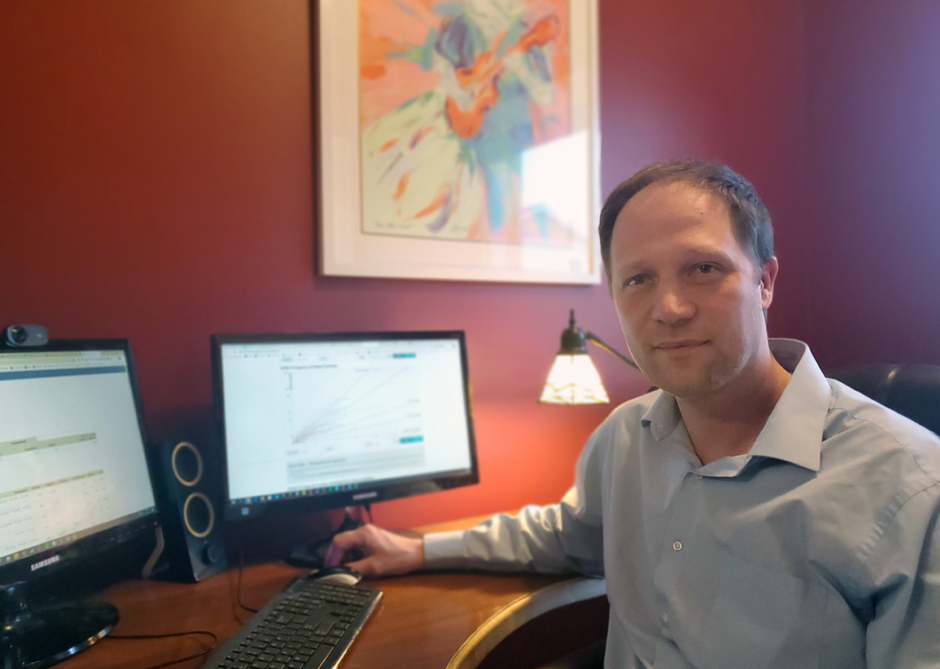
Peter Graven, PhD
Healthcare data science lead
“As lead data scientist at OHSU, I provide occupancy forecasts for the institution to anticipate demands on the system. As COVID-19 became apparent I began scrambling to determine how our demands will change. Before the state had taken significant action, I created a basic model to show the situation we would be facing: a true disaster. OHSU leadership had been making plans but was able to use the analysis to orient around a specific timeframe. The immense demand we expected was also communicated to Governor Brown. The state continued to take early strong action and we’d like to think we helped give them information to make those decisions.
We have clear problems and all the best hearts and minds ready to do whatever it takes. This is the time when we can make things happen that we never thought possible. Revolutions are happening in how we work together, how we deliver care, and the technologies we use to succeed. There is no better time to help us do big things.”
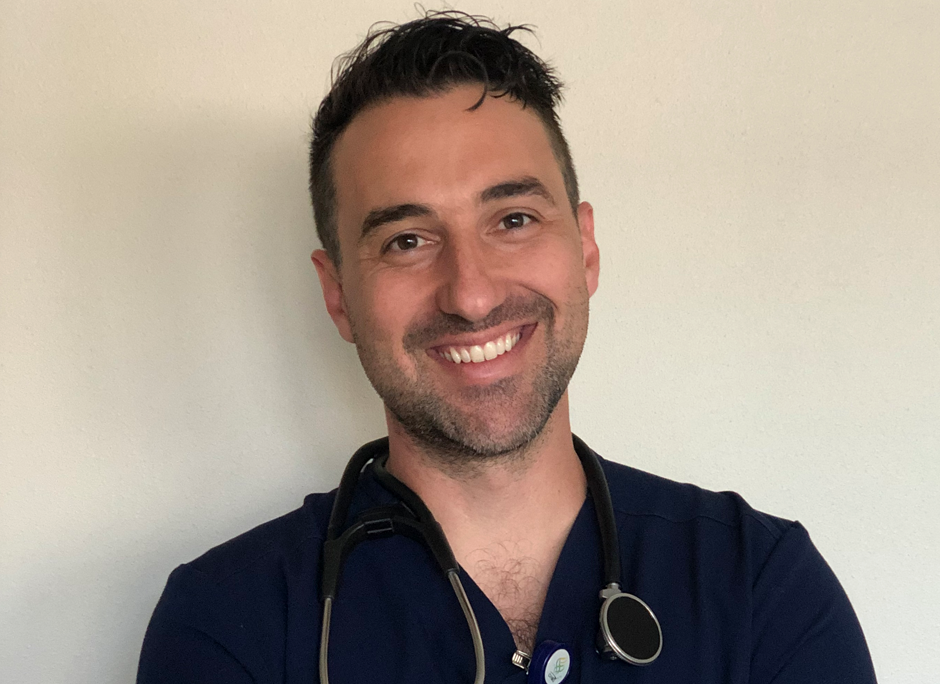
Ramsey Selbak, MD
Emergency department resident physician
“My focus as an emergency physician is to continue to provide high-level care to our patients every day, whether COVID-related or otherwise. We take care of patients during their most vulnerable times, and this level of uncertainty exacerbates all the fears that people have. I think our jobs as frontline providers is to strike a balance between hope and honesty, being sure not to sacrifice honesty. We have the unique opportunity to share these moments that are fraught with fear with our patients, to care for them in the face of a response that is literally changing hourly. It is difficult but truly is an honor.
The thing that has kept me going during this without a doubt is the amazing camaraderie that I see every day in the emergency department and hospital. The entire community has really stepped up and supported each other. The outpouring of support and thanks that we are receiving from our colleagues, family members, and complete strangers really helps to keep me going right now.
The reality is that we all play a vital role in the response to this pandemic. Although we are all feeling isolated and alone, this virus has revealed how interconnected we all are. Everyone is going to experience some form of hardship from this whether physical, emotional, financial or otherwise. We are all in this together.”
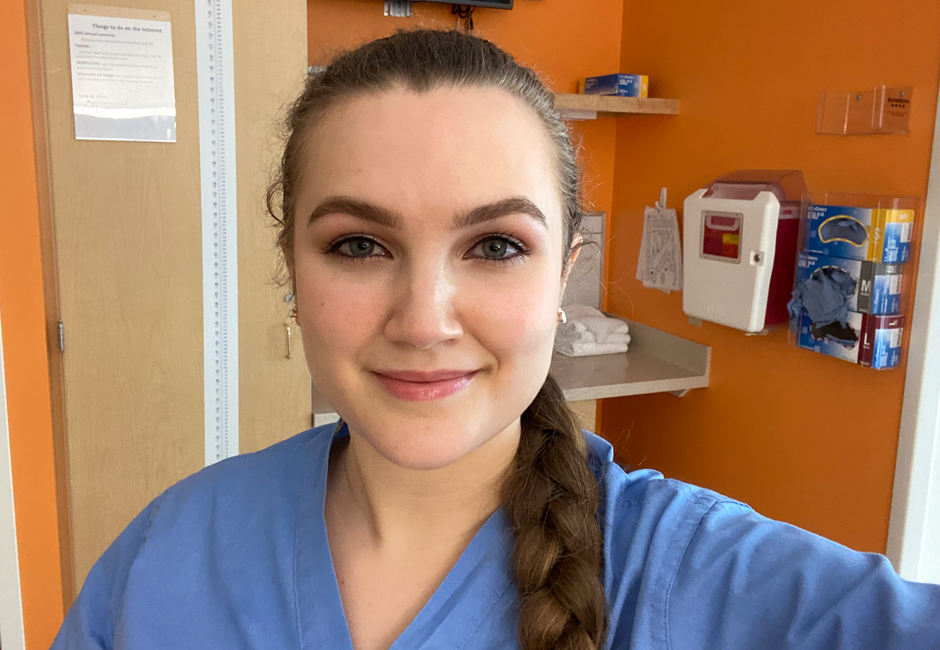
Marguerite Barton
Environmental services technician
“My focus as an environmental services technician is to provide a clean, safe environment for health care to take place. Our role is critical in this battle, because without us, the pandemic would grow out of control within OHSU itself.
I feel an obligation toward my community to continue my work because it is absolutely essential. It’s easy to be fearful in the face of this pandemic, but I am equipped with the knowledge and skills necessary to perform my job well — and, ultimately, we must move past fear, don our PPE, and do our job.”
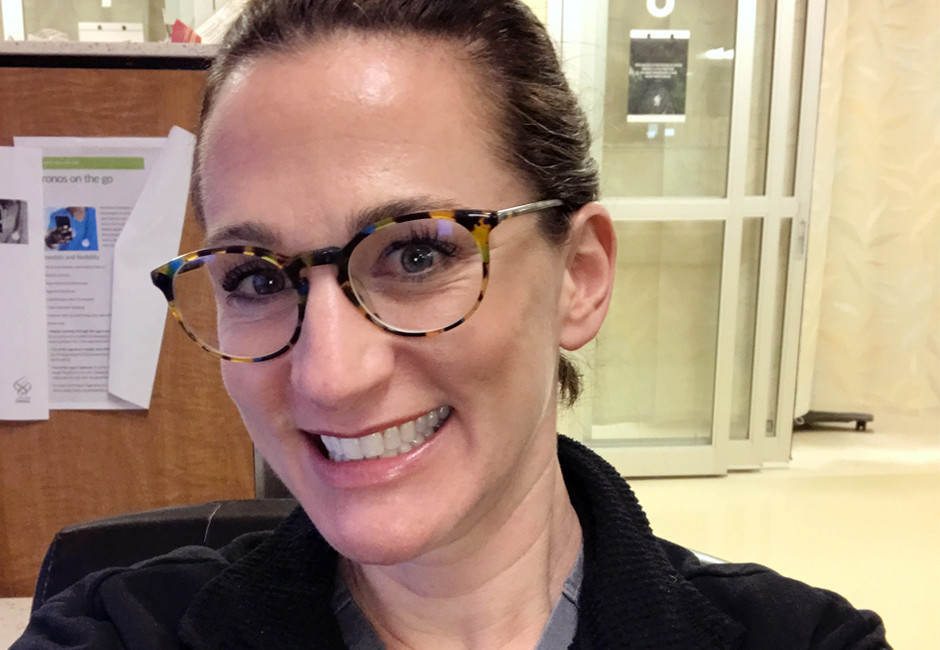
Diana Bijon, RN
Emergency department
“My entire focus at work has been keeping patients and our staff as safe as possible, from the very beginning of this pandemic.
My coworkers and I saw this pandemic coming, recognized a need to implement change, and advocated for it. Our ED leadership heard our call and mobilized, implementing incredible interdisciplinary feats, including converting an auditorium into a surge space for an influx of COVID-19 patients.
We are grateful to the entire state for staying home. They have bought us time to get ready, and we are ready.”
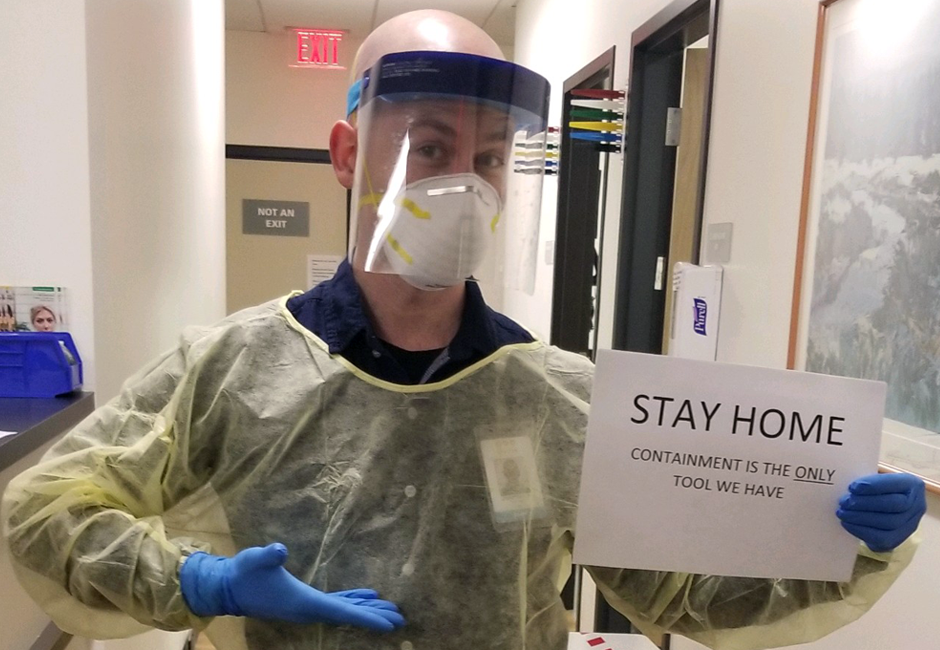
Jonathan Aebischer, DNP, FNP-C
OHSU School of Nursing PhD student
“I’m a locum — an on-call health care provider — so I work when the need arises. I volunteered to go into the frontlines and see patients at Central City Concern, a nonprofit in Portland that provides care to people who are experiencing homelessness. We gave the patients what they needed at that moment, whether it meant getting them more advanced care or trying to manage them on an outpatient basis.
We are in this together as a community. I feel flattered many times when people thank me for being a health care provider. But we are not the only ones who are combating this pandemic. We all have a role in this.”
